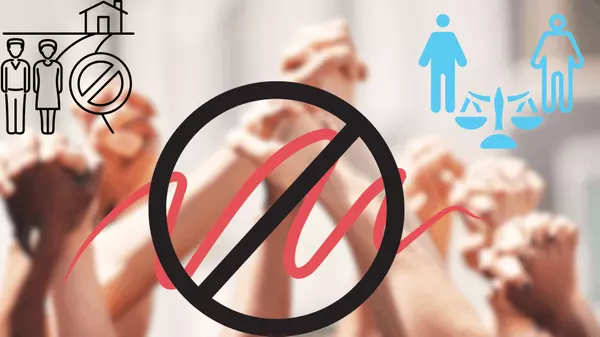Breaking Barriers in Lending: Citadel Federal Credit Union’s $6.5 Million Commitment to Philadelphia's Minority Communities

For nearly two decades, a hidden wall kept minority communities in Philadelphia from accessing the lending services they needed. Today, that wall is starting to come down. In a historic move, Citadel Federal Credit Union has committed $6.5 million to address redlining allegations and foster equitable financial opportunities for Black and Hispanic neighborhoods across Philadelphia.
In a landmark development, Citadel Federal Credit Union, based in Exton, Pennsylvania, has agreed to a $6.5 million settlement with the U.S. Department of Justice (DOJ) to address allegations of redlining—an illegal practice where lenders deny services to residents of certain areas based on racial or ethnic composition. This marks the DOJ's first redlining settlement involving a credit union, underscoring the agency's commitment to combating discriminatory lending practices across all financial institutions.
Background on Redlining and the DOJ's Initiative
Redlining has historically marginalized communities of color by restricting their access to essential financial services, thereby impeding opportunities for homeownership and wealth accumulation. Recognizing the enduring impact of such practices, the DOJ launched its Combating Redlining Initiative in 2021, aiming to eradicate discriminatory lending and promote equitable access to credit. Since its inception, the initiative has secured over a dozen settlements with various financial entities, reflecting a concerted effort to address systemic inequities in the financial sector.
Details of the Citadel Settlement
The DOJ's complaint alleged that from at least 2017 through 2021, Citadel Federal Credit Union failed to provide mortgage lending services to majority-Black and Hispanic neighborhoods in and around Philadelphia. The credit union's branches were predominantly located in majority-White neighborhoods, with none in Philadelphia, which encompasses over 75% of the majority-Black and Hispanic neighborhoods in Citadel's market area.
To resolve these allegations, Citadel has committed to several remedial actions:
-
Loan Subsidy Fund: Invest at least $6 million to increase access to home mortgage, home improvement, and home refinance loans for residents of majority-Black and Hispanic neighborhoods in Philadelphia.
-
Community Partnerships: Allocate at least $250,000 to develop partnerships providing services related to credit, consumer financial education, homeownership, and foreclosure prevention.
-
Advertising and Outreach: Spend at least $270,000 on advertising, outreach, consumer financial education, and credit counseling focused on predominantly Black and Hispanic neighborhoods in Philadelphia.
-
Branch Expansion: Open three new branches in predominantly Black and Hispanic neighborhoods in Philadelphia to enhance accessibility to financial services.
-
Community Lending Officer: Hire a community lending officer to oversee the development of lending in communities of color.
These measures aim to rectify past disparities and foster equitable access to financial services within the affected communities.
Implications for the Financial Industry
This settlement serves as a precedent, signaling that credit unions, alongside banks, are subject to scrutiny under fair lending laws. Assistant Attorney General Kristen Clarke emphasized that this agreement "makes clear our intent to hold all types of lenders accountable for their role in modern-day redlining."
The National Credit Union Administration (NCUA) also highlighted the significance of this settlement. Chairman Todd M. Harper stated, "It signals that federal credit unions must follow fair lending laws... and brings communities who have been discriminated against a step closer to an equitable opportunity to access safe, fair, and affordable financial services."
Conclusion
The Citadel Federal Credit Union settlement underscores the DOJ's unwavering commitment to eradicating discriminatory lending practices across all financial institutions. It serves as a reminder that equitable access to financial services is a fundamental right, and all lenders must actively work to ensure inclusivity and fairness in their operations.
By Jared Benoit
GET MORE INFORMATION




